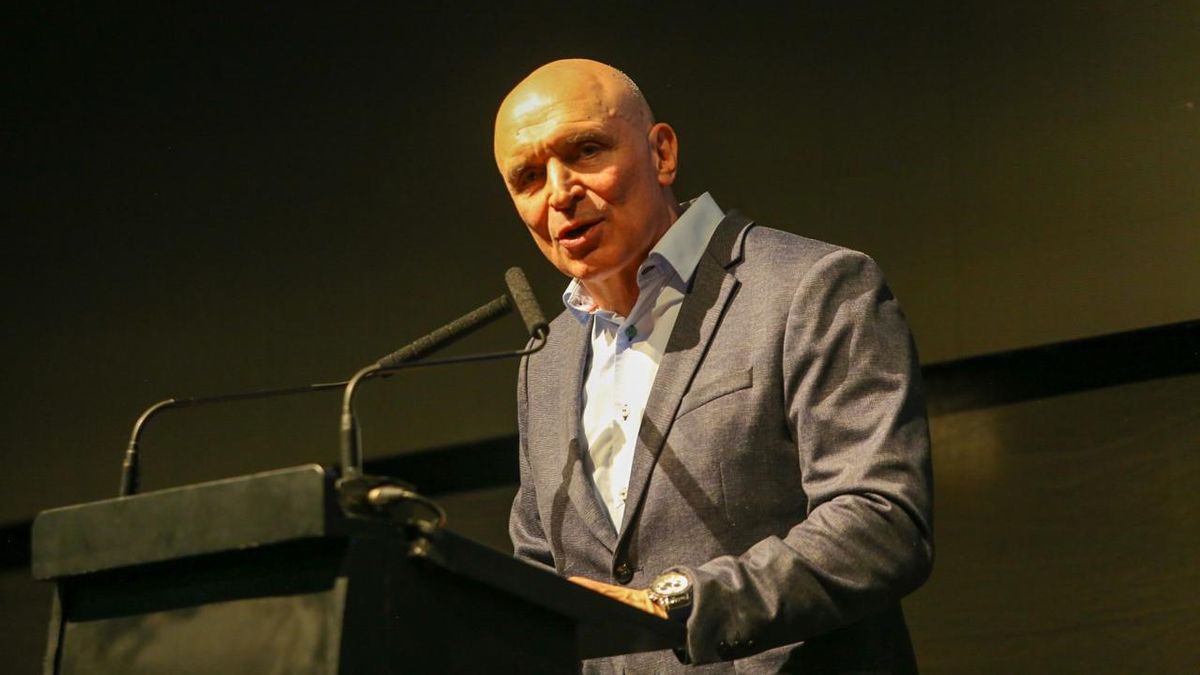Bundeswehr
Pistorius for more engagement in the Middle East
Copy the current link
What next for the Bundeswehr in the Middle East? Three days after the coup in Syria, the defense minister is traveling to two neighboring countries.
Defense Minister Boris Pistorius wants to talk to Iraq about possibilities for greater German involvement in the Middle East. After the coup in Damakus, clear signals to both Syria and the region were crucial, said the SPD politician after landing at the Jordanian Al-Asrak air base. Europe and Germany have a responsibility to contribute to stabilization.
“And that’s why it’s important that we stand with patience, but also determination, at the side of those who want to lead Syria onto a better path,” said Pistorius. He announced that he would travel to Turkey for talks in January.
The SPD politician wanted to find out about the situation in the region at meetings with German soldiers and to explore options for further German contributions to stabilization in government talks in Baghdad. Jordan and Iraq are neighbors of Syria, where ruler Bashar al-Assad was overthrown at the weekend by a rebel alliance led by Islamists. This offers opportunities, but also entails a lot of uncertainty in the foreseeable future.
Al-Asrak is a hub for German participation
The Bundeswehr is participating in international stabilization operations in Iraq and Jordan with around 300 men and women. Germany is providing soldiers for the US-led military alliance “Operation Inherent Resolve” (OIR) to fight the terrorist militia Islamic State (IS) and for the NATO Mission Iraq (NMI). These include military advisors who travel to Iraqi institutions, schools and training facilities.
The Al-Asrak military base is the hub for German engagement, but has also been useful on other occasions, such as the Bundeswehr’s evacuation operation from Sudan in 2023. The German Air Force also has the ability to refuel aircraft in the air at the base.
There is a question mark over the international operations in Iraq
“The so-called Islamic State (IS), despite the persecution pressure from the Iraqi army, continues to pose a nationwide threat due to ongoing terrorist actions against Iraqi security forces, local administrative structures and critical infrastructure,” said a situation report for the Defense Committee last week .
The international troop presence in Iraq is controversial
In April 2003, the USA led a “coalition of the willing” to attack Iraq – without Germany’s participation. US Secretary of State Colin Powell claimed that dictator Saddam Hussein possessed weapons of mass destruction. SPD Chancellor Gerhard Schröder and Green Foreign Minister Joschka Fischer (“Excuse me, I am not convinced”) opposed this.
The US invasion led to the overthrow of dictator Hussein, but also ushered in years of terrorist attacks and disappearances. Out of chaos and radicalization, the Islamic State (IS) began an advance, taking large parts of the country under its control by force and then losing control again with international intervention.
Iraq’s Prime Minister Mohammed al-Sudani now seems to want to start a new chapter. There is “no longer any justification” for the large US presence in the country, he emphasized several times.
The USA has also recently spoken of wanting to gradually realign its military presence in Iraq – away from the international military coalition in the country and towards a bilateral security partnership.
Al-Sudani also wants to agree bilateral agreements with other partners. He traveled to Spain for two days at the end of November and signed several memoranda of understanding on cooperation in the areas of justice, security, economic and trade issues and the fight against corruption.
Period of uncertainty in the Middle East
Pistorius’ program in Baghdad includes talks with the Iraqi Defense Minister Thabet al-Abbasi and with the commander of the NATO mission in Iraq, the Dutch Lieutenant General Lucas Schreurs.
Against the backdrop of the Gaza war, after the fighting between Israel and the Hezbollah militia and a few days after the coup in Syria, there is a new phase of uncertainty in the Middle East. After the coup in Syria, Iraq strengthened its border security and closed the Al-Kaim border crossing.
Is the Middle East heading towards stabilization or will further violent conflicts follow? How do Israel and Iran, which appears weakened, behave? The new situation is likely to significantly change the regional balance of power. Pistorius is traveling to a region where there are initially more unanswered questions than answers.
dpa
Source: Stern
I have been working in the news industry for over 6 years, first as a reporter and now as an editor. I have covered politics extensively, and my work has appeared in major newspapers and online news outlets around the world. In addition to my writing, I also contribute regularly to 24 Hours World.




